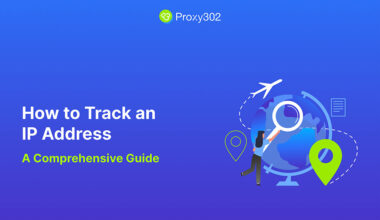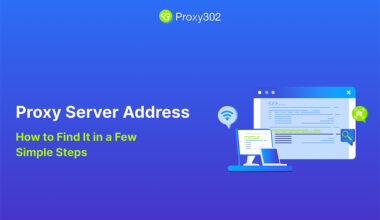In the digital age, where privacy and security are paramount, proxy servers have emerged as vital tools for both individuals and businesses. They serve as gateways to the internet, providing a layer of anonymity and security. This article delves into the mechanics of proxy servers, exploring how they work and why they are essential.
What is a Proxy Server?

A proxy server acts as an intermediary between a user’s device and the internet. When you send a request to access a website, the request first goes to the proxy server. The proxy then forwards your request to the internet on your behalf. Think of it as a middleman in a transaction, ensuring your identity remains hidden while still getting the job done.
Types of Proxy Servers
Understanding the different types of proxy servers is crucial to appreciating their versatility and functionality.
- Forward Proxy A forward proxy is what most people think of when they hear “proxy server.” It sits between the client and the internet, forwarding requests from the client to the web. It’s often used to bypass geo-restrictions or to filter content.
- Reverse Proxy Unlike a forward proxy, a reverse proxy sits in front of web servers and forwards client requests to those servers. This setup is popular for load balancing, enhancing security, and caching static content to improve performance.
- Transparent Proxy A transparent proxy does not modify requests or responses and is typically used for caching and filtering. It’s called “transparent” because it doesn’t require any configuration on the client’s part.
- Anonymous Proxy This type of proxy hides your IP address, providing a degree of anonymity. It’s particularly useful for users who want to maintain privacy while browsing the internet.
How Proxy Servers Work

- Basic Operation When you connect to a proxy server, it assigns you a new IP address, masking your original one. This process involves the proxy receiving your request, modifying the header to include its IP address, and then forwarding the request to the target server. Once the server responds, the proxy sends the response back to you.
- Data Flow Imagine a river flowing through a series of gates. Each gate represents a proxy server, controlling the flow of data. This analogy illustrates how proxies manage requests and responses, ensuring data reaches its destination securely and efficiently.
- Caching and Filtering Proxy servers can cache frequently accessed content, reducing load times and bandwidth usage. They also filter requests, blocking access to certain websites based on predefined rules, which is particularly useful in corporate environments.
Benefits of Using Proxy Servers

- Security Proxy servers enhance security by acting as a barrier between your device and the internet. They can block malicious sites and prevent direct access to your network.
- Privacy By hiding your IP address, proxies offer a layer of anonymity, protecting your personal information from prying eyes.
- Performance Proxies can significantly improve performance by caching data and distributing traffic evenly across servers, a process known as load balancing.
Setting Up a Proxy Server
Setting up a proxy server might sound daunting, but it’s quite straightforward. Here’s a simple guide:
- Choose a Proxy Server: Decide whether you need a forward, reverse, or another type of proxy. A reliable proxy service provider like Proxy 302 will be a good choice to start.
- Select Software: Use software like Squid or Nginx, which are popular for setting up proxies.
- Configure the Proxy: Set up the proxy’s IP address, port, and any rules for caching or filtering.
- Test the Setup: Ensure the proxy is forwarding requests and responses correctly.
Common Use Cases
- Corporate Networks Businesses use proxy servers to monitor employee internet usage, block harmful content, and secure their networks from external threats.
- Content Access Proxies are invaluable for accessing geo-restricted content. For example, they allow users to watch region-specific Netflix shows by masking their location.
- SEO and Marketing In the world of digital marketing, proxies are used to scrape data from websites, monitor competitor activity, and manage multiple social media accounts without being flagged.
Conclusion
Proxy servers are more than just tools for anonymity; they are essential components in today’s digital landscape. Whether you’re looking to enhance security, improve performance, or access restricted content, proxies offer a versatile solution.
Try Proxy302 for Free!
Looking to get started with proxy servers? Proxy302 offers a flexible, pay-as-you-go model without tiered pricing. With a global premium network, you can enjoy enhanced security and performance. Sign up today for a free trial and discover the benefits of Proxy302 for yourself!
By understanding how proxy servers work and their myriad applications, you can leverage them to enhance your online experience, whether for personal use or business needs.









1 comment
Your point of view caught my eye and was very interesting. Thanks. I have a question for you.